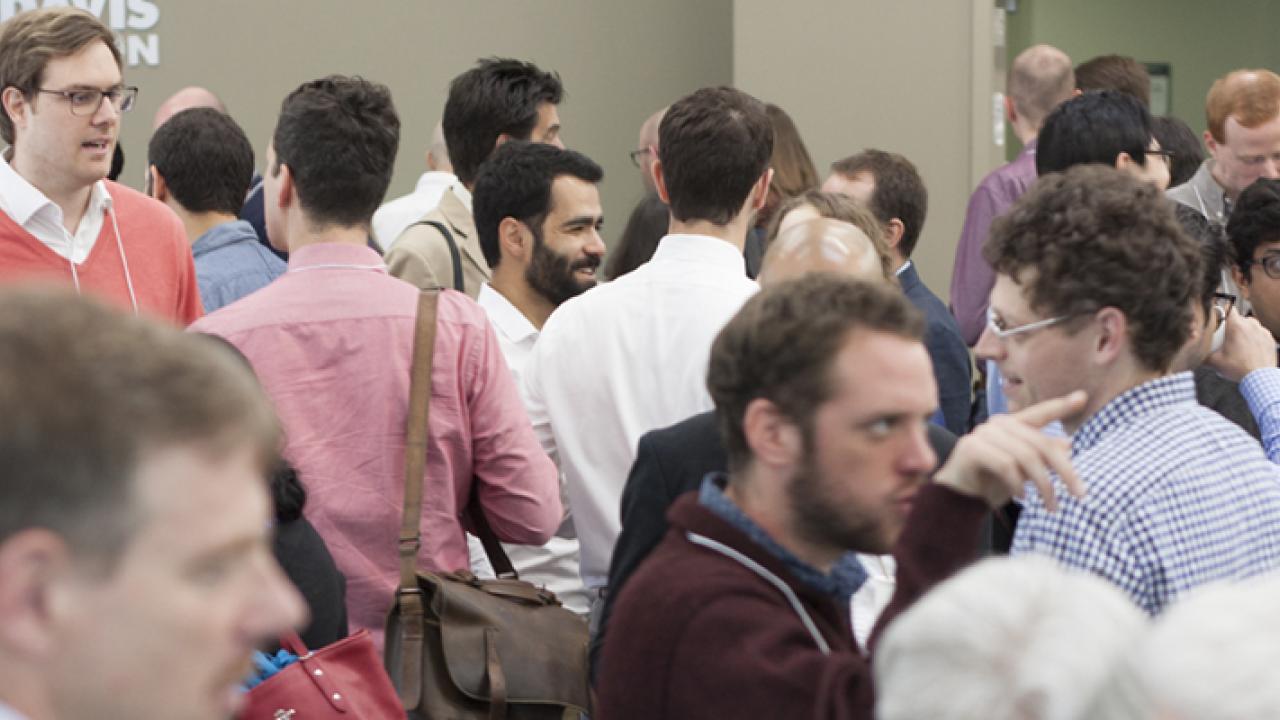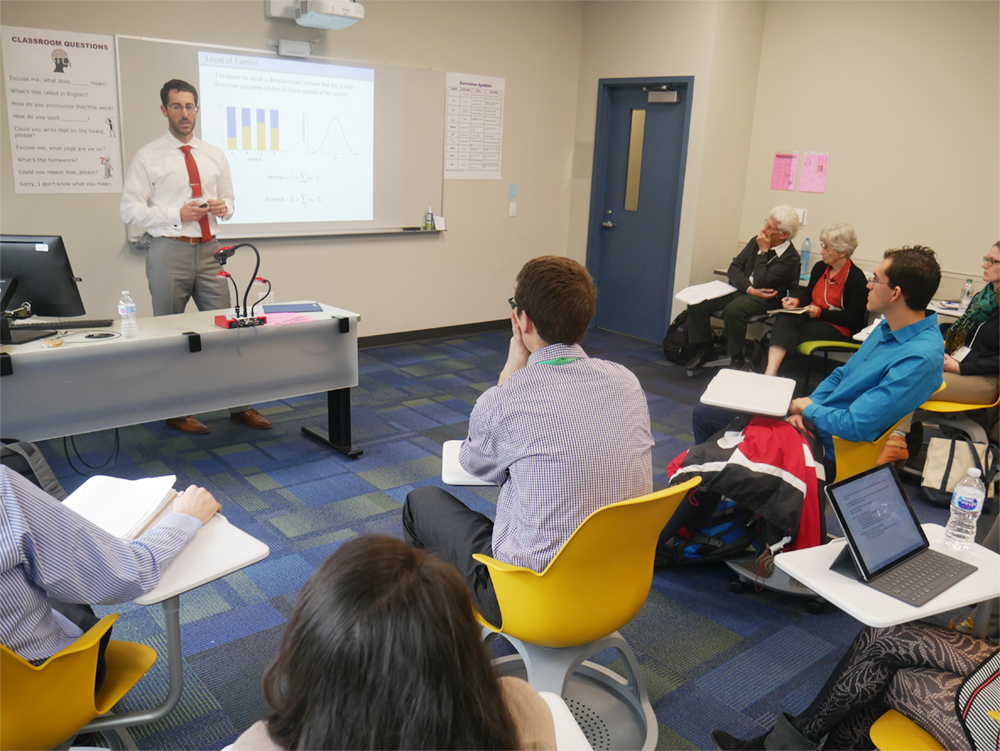
PacDev 2018 Features Leading Grad Student Research on Development
At this year’s PacDev, one of the biggest annual conferences on development economics in the United States, Jonathan Malacarne was presenting his new research from Mozambique.
Malacarne’s talk, which took place on March 10, 2018 in a small room in the UC Davis International Center, was a 12-minute rush followed by three minutes of questions from economists whose work he had been reading since he began his studies at UC Davis. Malacarne is a Ph.D. candidate in agricultural and resource economics and his talk was taken from his dissertation, which will be finished by the time he enters the job market next year.

“You put a lot of time and effort and yourself into a dissertation,” said Malacarne. “Getting it out there is challenging. Opening yourself up to other people and the criticisms they have of it is challenging.”
PacDev—The Pacific Conference on Development Economics—is an annual conference for research on the economics of developing countries. This research often focuses on poverty, inequality, small-scale agriculture, globalization and trade.
While tenured faculty researchers tend to dominate presentations at this kind of conference, at PacDev 2018 a lot of the work came from graduate students who are at the leading edge of research in the field. About 40 percent of this year’s PacDev presentations came from graduate students.
“This is an opportunity to advance cutting-edge research on economic development,” said Michael Carter, a professor of agricultural and resource economics at UC Davis and a co-organizer of the event. “That’s one of the things we do as a research institution.”
This year is the third time since 2007 PacDev has been hosted at UC Davis. It was organized by Laura Meinzen-Dick, a Ph.D. student in agricultural and resource economics.
In addition to all the work needed to ensure a conference of 150 attendees ran smoothly, Meinzen-Dick led the selection of papers from the nearly 300 that were submitted from researchers around the globe. The one-day conference included 63 talks across four rooms with time left over for breaks, lunch, a keynote talk and a reception when the presentations were all done.
“It’s a pretty intense day of getting feedback on papers,” said Meinzen-Dick, “but it’s also an event where you get to have substantive engagement with people.”
The research Malacarne presented at PacDev 2018 is part of a Feed the Future Innovation Lab for Assets and Market Access randomized controlled trial (RCT) in Mozambique. The project, led by the lab’s director Michael Carter, pairs drought-tolerant maize seeds with insurance to extend drought-risk coverage.
As a research assistant on the study, Malacarne spent nearly a year in Mozambique to help manage and conduct farmer surveys in more than 70 communities. His own research focuses on the link between perceptions of self-efficacy and investment behavior. The paper he presented at PacDev 2018 looked at how farmers attribute changes in production to factors they can control, such as inputs, and factors they cannot, like the weather.
“There are just so many questions that come up in the field and so many of them are unanswered,” said Malacarne. “If you want to help people to have more freedom, better access to services and to take control of their lives, you have to start to answer these questions.”
Before he began his studies in the Department of Agricultural and Resource Economics at UC Davis, the top program of its kind in the world, Malacarne served in the Peace Corps. He said he likes working with researchers who always have in mind the people who are the focus of their work and the real challenges they face.
“A conference like PacDev is great because you have a lot of people who are trying to answer similar questions,” said Malacarne.
